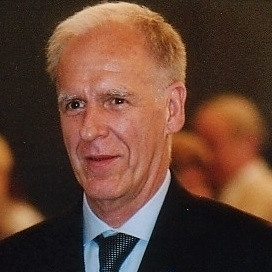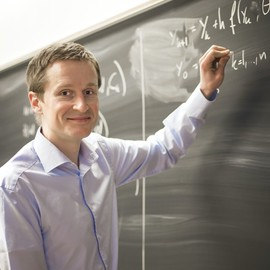View the recordings of all the lectures on our YouTube Playlist, or select a specific presentation below.
About
Dates: April 8 - April 10 (2021)
Location: Online, via Zoom
Topic: Models and Data
The third edition of Spring School on Models and Data will be virtual and will be held on Zoom from April 8 to April 10, 2021. The registration is free.
The main events will be: a lecture by Ron DeVore at 4:30pm EDT on Thursday, April
8; three one-hour interactive lectures by Lars Ruthotto each consisting of 20 min
presentation, 15 min discussion and questions, 15 min coding/numerical experiments,
and short breaks in between from 2:00pm to 5:00pm EDT on Friday, April 9; and a lecture
by Stanley Osher at 2:00 EDT on Saturday, April 10, 2021.
The topics addressed in the Spring Schools pertain to ongoing vibrant developments
in areas like machine learning, notable deep learning, computation harmonic analysis,
scientific computing in data poor situations, transport information geometry, as a
pillar in data science, or uncertainty quantification, mean-field games and related
modeling or numerical analysis aspects.
Invited Speakers

Ron DeVore
Texas A&M University
Deep Learning and Neural Networks: The Mathematical View
Abstract: Deep Learning is much publicized and has had great empirical success on challenging
problems in learning. Yet there is no quantifiable proof of performance and certified
guarantees for these methods. This talk will give an overview of Deep Learning from
the viewpoint of mathematics and numerical computation.

Stanley Osher
University of California, Los Angeles (UCLA)
An Introduction to Generative Modeling
Abstract: Deep generative models (DGM) are neural networks with many hidden layers trained to
approximate complicated, high-dimensional probability distributions from a finite
number of samples. When trained successfully, we can use the DGMs to estimate the
likelihood of each observation and to create new samples from the underlying distribution.
Developing DGMs has become one of the most hotly researched fields in artificial intelligence
in recent years. The literature on DGMs has become vast and is growing rapidly.Some
advances have even reached the public sphere, for example, the recent successes in
generating realistic-looking images, voices, or movies; so-called deep fakes.Despite
these successes, several mathematical and practical issues limit the broader use of
DGMs: given a specific dataset, it remains challenging to design and train a DGM and
even more challenging to find out why a particular model is or is not effective. To
help students contribute to this field, this mini course provides an introduction
to DGMs and provides a concise mathematical framework. The course will consist of
three 45 minutes blocks each devoted to one of the three most popular approaches:
normalizing flows (NF), variational autoencoders (VAE), and generative adversarial
networks (GAN). In addition to a mathematical formulation, each block illustrate the
advantages and disadvantages of the approaches using numerical experiments that students
can use to deepen their understanding after the course. Our goal is to enable and
motivate the reader to contribute to this proliferating research area.

Lars Ruthotto
Emory University
Innovations in Mean-Field Game Theory for Scalable Computation and Diverse Applications
Abstract: Mean-field games play essential roles in AI inference and optimization problems and
controlling natural disasters, such as COVID 19. In this talk, we present several
results by our MURI team. We designed fast and reliable numerical algorithms with
connections to AI and machine learning, controlling COVID 2019 pandemic spreading
and planning optimal vaccine distribution. Several numerical examples and engineering
experiments will be presented. Future directions will be discussed. This is based
on joint works with many people at UCLA, Wuchen Li in University of South Carolina,
University of Houston, and Princeton University.
Mirjeta Pasha
Arizona State University
An optimal experimental design approach to learn parameters for solving large-scale
inverse problems
Craig Chen
Duke University
Gradients for Linear Quadratic Regulators with Nonlinear Controls
Guanqun Cao
Auburn University
Functional Data Analysis via Deep Neural Networks
Andrew Lamont Hinton
University of North Carolina - Chapel Hill
Perturbations in gut microbiome composition in response to food protein predicts anaphylaxis
in genetically susceptible mice
Jeungeun Park
University of Cincinnati
Collective behavior in bacterial chemotaxis


